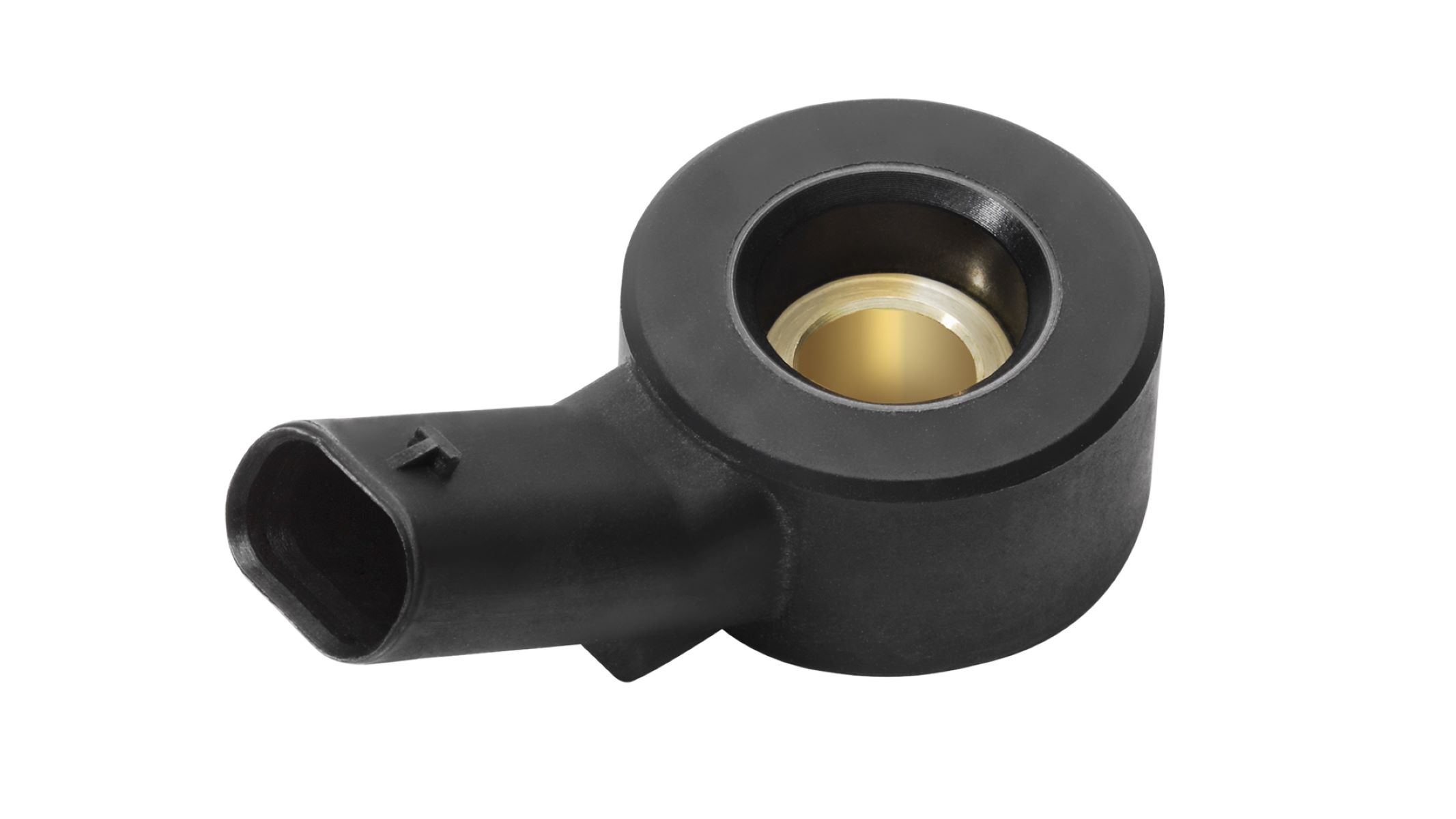Home>Automotive>The Surprising Reasons Your Knock Sensor Is Failing


Automotive
The Surprising Reasons Your Knock Sensor Is Failing
Published: January 8, 2024
Discover the unexpected causes behind your automotive knock sensor issues. Learn how to prevent and troubleshoot failures effectively.
(Many of the links in this article redirect to a specific reviewed product. Your purchase of these products through affiliate links helps to generate commission for Regretless.com, at no extra cost. Learn more)
Table of Contents
Introduction
Your car's engine is a marvel of engineering, with countless components working in harmony to propel you forward. Among these components, the knock sensor plays a crucial role in ensuring the smooth and efficient operation of your vehicle. However, despite its importance, the knock sensor is often overlooked until it starts causing trouble.
In this article, we will delve into the often underestimated world of knock sensors, shedding light on the reasons behind their failure and the impact of neglecting their maintenance. Whether you're a seasoned car enthusiast or simply someone who relies on their vehicle for daily transportation, understanding the intricacies of knock sensors can empower you to take proactive measures and avoid potential headaches down the road.
So, buckle up and prepare to uncover the surprising reasons behind knock sensor failure, as well as the steps you can take to prevent such issues from disrupting your driving experience. Let's embark on this journey to unravel the mysteries of knock sensors and equip ourselves with the knowledge needed to keep our engines purring smoothly.
Understanding Knock Sensors
At the heart of your vehicle's engine lies the knock sensor, a small yet mighty component that plays a pivotal role in optimizing performance and safeguarding the integrity of the powertrain. But what exactly is a knock sensor, and how does it contribute to the overall functionality of your car?
A knock sensor, also known as a detonation sensor, is a specialized device designed to detect abnormal combustion within the engine cylinders. Its primary function is to monitor the engine's combustion process and identify any instances of detonation or knocking. When the knock sensor detects these irregularities, it sends signals to the engine control unit (ECU), prompting it to make necessary adjustments to prevent potential damage.
The operation of a knock sensor revolves around its ability to perceive the distinct sound waves produced by detonation. This auditory discernment is achieved through the sensor's sensitive piezoelectric elements, which convert mechanical vibrations into electrical signals. By continuously analyzing these signals, the knock sensor can effectively identify the presence of knocking and relay this information to the ECU in real time.
In essence, the knock sensor serves as a vigilant guardian, constantly monitoring the combustion process to ensure that it remains within the optimal parameters. By promptly detecting any signs of detonation, the sensor enables the ECU to fine-tune the ignition timing and fuel delivery, thereby preventing potential engine damage and optimizing performance.
Furthermore, modern vehicles often feature advanced knock sensor systems that utilize sophisticated algorithms to differentiate between normal engine noises and true knocking events. This technological evolution has significantly enhanced the accuracy and reliability of knock sensors, allowing them to provide precise feedback to the ECU and facilitate seamless adjustments for optimal engine operation.
In summary, the knock sensor stands as a silent sentinel within the engine, diligently listening for the telltale signs of detonation and communicating with the ECU to maintain the engine's health and efficiency. Its ability to swiftly identify and address abnormal combustion underscores its significance in preserving the longevity and performance of your vehicle's powerplant.
Common Causes of Knock Sensor Failure
-
Excessive Engine Heat: Prolonged exposure to high temperatures can compromise the functionality of the knock sensor. As the engine bay becomes a cauldron of heat during operation, the sensor may succumb to thermal stress, leading to diminished sensitivity and responsiveness. Additionally, extreme heat can accelerate the degradation of the sensor's internal components, impairing its ability to accurately detect detonation events.
-
Vibration and Physical Damage: The relentless vibrations and mechanical stresses experienced by the engine can take a toll on the knock sensor over time. These incessant movements, coupled with the harsh operating environment, may result in physical damage to the sensor or its mounting components. Such damage can disrupt the sensor's delicate calibration, rendering it less effective in detecting and reporting knocking occurrences.
-
Contaminants and Corrosion: The ingress of contaminants, such as oil, coolant, or debris, into the vicinity of the knock sensor can lead to corrosion and electrical malfunctions. Over time, these infiltrations can compromise the sensor's electrical connections and impair its ability to transmit accurate signals to the ECU. Furthermore, the corrosive effects of these substances can undermine the sensor's structural integrity, exacerbating its susceptibility to failure.
-
Age and Wear: Like many components in a vehicle, knock sensors are subject to the natural wear and tear that accompanies prolonged usage. As the miles accumulate, the sensor's internal components may undergo degradation, diminishing its sensitivity and overall effectiveness. The aging process can also lead to a gradual decline in the sensor's ability to discern genuine knocking events from normal engine noises, resulting in false readings and potential performance issues.
-
Faulty Wiring and Electrical Issues: The intricate network of wiring and connectors associated with the knock sensor can be susceptible to wear, damage, or electrical faults. Issues such as frayed wiring, loose connections, or electrical shorts can disrupt the communication between the sensor and the ECU, leading to erratic behavior and inaccurate readings. Moreover, electrical anomalies within the vehicle's electrical system can adversely impact the knock sensor's performance, potentially causing it to fail prematurely.
-
Fuel and Oil Contamination: The presence of contaminated fuel or oil within the engine can pose a threat to the knock sensor's functionality. Substances such as low-quality fuel, excessive carbon deposits, or oil sludge can compromise the sensor's operation by interfering with its sensing capabilities or causing internal fouling. This contamination can impede the sensor's ability to accurately detect knocking events, leading to potential drivability issues and reduced engine efficiency.
Understanding these common causes of knock sensor failure is crucial for proactive maintenance and troubleshooting. By addressing these underlying factors, vehicle owners can mitigate the risk of knock sensor-related issues and ensure the continued optimal performance of their engines.
The Impact of Ignoring Knock Sensor Issues
Neglecting knock sensor issues can have far-reaching consequences that extend beyond the immediate drivability concerns. When a vehicle's knock sensor malfunctions or goes unaddressed, the repercussions can manifest in various aspects of engine performance, fuel efficiency, and long-term reliability.
First and foremost, a faulty knock sensor can compromise the engine's combustion control system, leading to suboptimal ignition timing and fuel delivery. This can result in reduced power output, diminished throttle response, and overall sluggish performance. In more severe cases, persistent knocking or detonation, left unchecked due to a malfunctioning knock sensor, can inflict damage to the engine's internal components, such as pistons, valves, and cylinder walls. This can culminate in costly repairs and potential engine failure, jeopardizing the vehicle's longevity and reliability.
Furthermore, the impact of ignoring knock sensor issues extends to fuel economy and emissions. A malfunctioning knock sensor may fail to accurately detect knocking events, leading to the ECU's inability to make timely adjustments for optimal fuel combustion. As a result, the engine may operate in a suboptimal state, consuming more fuel than necessary and emitting higher levels of pollutants. This not only translates to increased fuel expenses for the vehicle owner but also contributes to environmental pollution, undermining efforts to minimize carbon emissions and air pollution.
In addition to performance and efficiency concerns, the neglect of knock sensor issues can impede the vehicle's onboard diagnostics and emission control systems. Modern vehicles rely on the feedback from various sensors, including the knock sensor, to ensure compliance with emission standards and maintain peak operational efficiency. A malfunctioning knock sensor can disrupt this delicate balance, triggering fault codes, illuminating the check engine light, and compromising the vehicle's ability to undergo emissions testing. This can lead to regulatory non-compliance, potential fines, and the inconvenience of addressing persistent warning indicators.
Moreover, the long-term implications of ignoring knock sensor issues encompass the overall health and reliability of the vehicle. By disregarding the early signs of knock sensor malfunction, vehicle owners risk subjecting their engines to prolonged stress and suboptimal operating conditions. This can accelerate wear and tear on critical engine components, diminish the vehicle's long-term reliability, and necessitate costly repairs or premature component replacements.
In essence, the impact of ignoring knock sensor issues reverberates across multiple facets of vehicle operation, encompassing performance, fuel efficiency, emissions compliance, and long-term reliability. Addressing knock sensor concerns in a timely manner is paramount to safeguarding the engine's health, optimizing fuel economy, and ensuring a trouble-free driving experience.
How to Prevent Knock Sensor Failure
Preventing knock sensor failure entails proactive measures aimed at preserving the sensor's functionality and ensuring the optimal performance and longevity of the vehicle's engine. By implementing the following preventive strategies, vehicle owners can mitigate the risk of knock sensor-related issues and maintain a reliable and efficient driving experience.
Read more: How To Replace Your O2 Sensor
Regular Maintenance and Inspections
Scheduled maintenance, including routine engine inspections, can significantly contribute to the early detection and resolution of potential knock sensor issues. By adhering to the manufacturer's recommended service intervals, vehicle owners can address underlying factors that may compromise the sensor's performance, such as contaminated fluids, worn components, or electrical irregularities. Regular inspections also enable the timely identification of physical damage or signs of deterioration, allowing for prompt corrective action before minor concerns escalate into major malfunctions.
Quality Fuel and Fluids
The quality of fuel and engine fluids directly impacts the operational integrity of the knock sensor and the overall combustion process. Utilizing high-quality, clean fuel and adhering to recommended oil change intervals can prevent the buildup of contaminants that may compromise the sensor's functionality. Additionally, using fuel and fluids that meet the vehicle manufacturer's specifications helps minimize the risk of internal engine deposits, corrosion, and other detrimental effects that can impact the knock sensor's accuracy and longevity.
Gentle Driving Habits
Practicing smooth and gentle driving habits can contribute to the preservation of the knock sensor's delicate components and overall engine health. Avoiding aggressive acceleration, abrupt deceleration, and prolonged high-load driving conditions can reduce the likelihood of engine knocking, thereby alleviating the sensor's workload and minimizing wear and tear. By driving conscientiously and avoiding harsh operating conditions, vehicle owners can prolong the sensor's lifespan and promote consistent, trouble-free performance.
Addressing Engine Abnormalities Promptly
Any signs of engine abnormalities, such as unusual noises, decreased performance, or irregular operation, should be promptly addressed to prevent potential knock sensor issues. Timely diagnosis and resolution of engine-related concerns can prevent the exacerbation of conditions that may impact the knock sensor's functionality. Whether it involves addressing misfires, resolving sensor fault codes, or investigating unusual engine behavior, proactive attention to these issues can safeguard the knock sensor and the overall health of the engine.
Read more: How To Test A Crankshaft Position Sensor
Proper Repairs and Replacements
In the event of identified knock sensor issues or related concerns, it is crucial to entrust repairs and replacements to qualified automotive professionals. Utilizing genuine, high-quality replacement components and adhering to proper installation procedures can ensure the optimal performance and longevity of the new knock sensor. Additionally, addressing underlying causes, such as wiring faults or fluid contamination, during the repair process can prevent recurrent sensor issues and promote sustained reliability.
By integrating these preventive measures into their vehicle maintenance regimen, owners can proactively safeguard the knock sensor against potential failures, optimize engine performance, and uphold the long-term reliability of their vehicles. Embracing a proactive approach to knock sensor maintenance empowers vehicle owners to minimize the risk of drivability concerns, enhance fuel efficiency, and preserve the integrity of their engines for miles to come.
Conclusion
In conclusion, the often overlooked knock sensor plays a pivotal role in safeguarding the health and performance of a vehicle's engine. By diligently monitoring the combustion process and detecting potential knocking events, the knock sensor enables the engine control unit to make timely adjustments, thereby preventing damage and optimizing performance. However, the reliability and effectiveness of the knock sensor can be compromised by various factors, including excessive heat, physical damage, contaminants, aging, electrical issues, and fuel or oil contamination.
The consequences of neglecting knock sensor issues extend beyond mere drivability concerns, encompassing diminished performance, compromised fuel efficiency, emissions non-compliance, and long-term engine reliability. Ignoring knock sensor malfunctions can lead to suboptimal combustion control, reduced power output, increased fuel consumption, and potential damage to critical engine components. Furthermore, the environmental impact of elevated emissions and the regulatory implications of non-compliance underscore the significance of addressing knock sensor issues in a timely manner.
To prevent knock sensor failure, proactive maintenance measures are essential. Regular inspections, adherence to recommended service intervals, and the use of high-quality fuel and fluids can contribute to the sensor's longevity and operational integrity. Additionally, cultivating gentle driving habits, promptly addressing engine abnormalities, and ensuring proper repairs and replacements can mitigate the risk of knock sensor-related issues and sustain engine performance.
By embracing a proactive approach to knock sensor maintenance, vehicle owners can safeguard their engines, optimize fuel economy, and ensure a trouble-free driving experience. Understanding the critical role of the knock sensor and taking proactive measures to preserve its functionality empowers vehicle owners to navigate the road with confidence, knowing that their engines are operating at their best.
In essence, the humble knock sensor, often concealed within the engine's intricate assembly, stands as a silent guardian, tirelessly listening for the faint whispers of detonation and facilitating the harmonious orchestration of the combustion process. Its significance transcends its diminutive stature, underscoring its indispensable contribution to the reliability, efficiency, and longevity of the modern automobile. As we bid farewell to the mysteries of knock sensor failure, let us embark on our journeys with a newfound appreciation for this unassuming yet indispensable component, knowing that its vigilance ensures the smooth purr of our engines for miles to come.













